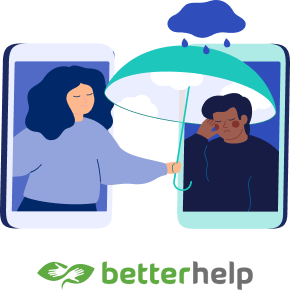Prozac (Fluoxetine)
Prozac treats major depressive disorder (MDD), obsessive-compulsive disorder (OCD), panic attacks, bulimia nervosa and premenstrual dysphoric disorder (PMDD). It is a popular antidepressant in a class of selective serotonin reuptake inhibitor drugs (SSRIs).
What Is Prozac?
Prozac, or fluoxetine, is a Selective Serotonin Reuptake Inhibitor, also known as an SSRI. Prozac and other SSRIs are not considered narcotics (controlled substances), and the U.S. Drug Enforcement Administration doesn’t consider it to have a high risk of addiction or abuse.
It’s one of the most prescribed antidepressants in the United States, with more than 28 million Americans reportedly using it. Prozac stimulates certain chemical messengers (neurotransmitters) that communicate between brain cells. It was the first SSRI that the U.S. Food and Drug Administration (FDA) approved to treat depression in adults, children and adolescents.
Fluoxetine may improve mood and energy levels, but it may also result in common fluoxetine side effects including agitation, abnormal heartbeat and confusion. Serious side effects include suicidal thoughts, insomnia and anorexia. Some studies also link Prozac to birth defects in children. However, as of March 2017, the FDA has not added new warnings to Prozac’s label.
People sometimes wonder if Prozac is the same as Xanax (alprazolam). Although they’re both prescribed for similar conditions, including anxiety and panic disorders, Xanax is not an SSRI. Xanax is a benzodiazepine. The two drugs are not interchangeable, but some people take Prozac for anxiety, an off-label use the FDA has not approved.
What Is Prozac Used For?
Prozac is used to treat major depressive disorder, obsessive-compulsive disorder, panic disorder, bulimia, premenstrual dysphoric disorder, binge eating disorder and bipolar depression. Doctors also prescribe it for treatment-resistant depression in combination with olanzapine (Zyprexa).
Prozac can make you feel more optimistic, improving mood, appetite, sleep, focus and energy levels. It may also decrease anxiety, fear, unwanted thoughts and panic attacks.
- Major depressive disorder (MDD)
- Obsessive-compulsive disorder (OCD)
- Bulimia nervosa
- Panic disorder with or without agoraphobia
- Acute depressive episodes associated with bipolar I disorder (with Zyprexa)
- Treatment-resistant depression (with Zyprexa)
- Migraine headaches (off-label)
- Diabetic neuropathy (off-label)
- Fibromyalgia (off-label)
- Generalized anxiety disorder (off-label)
- Neurocardiogenic syncope (off-label)
- Premature ejaculation (off-label)
Manufacturer Eli Lilly has not put off-label uses of Prozac through clinical trial testing and the FDA has not approved these uses.
New research in 2022 calls into question the effectiveness of SSRIs for depression. A study from the University College of London suggests a serotonin chemical imbalance may not be correlated with depression, which is what SSRIs address.
What to Know Before Taking Prozac
Before taking Prozac, you should know that drug interactions are possible. It’s important to tell your doctors about any current medications, herbs and supplements you’re already taking and if you’re allergic to any drugs. This is especially important if you are taking, or recently stopped taking, a monoamine oxidase inhibitor (MAOI) such as Zyvox, Nardil, Parnate, Zelapar or Emsam.
Also let your doctors know if you’re pregnant, trying to get pregnant or if you’re nursing an infant.
Drug Interactions
Prozac may interact with a variety of drugs, including MAOIs, certain antipsychotics and some antidepressants (TCAs), potentially causing fatal complications.
Side effects of Prozac drug interactions can include internal bleeding, seizures and abnormal heart rhythms. Patients should always check with their doctors before taking any medication with Prozac.
Serious drug interactions include:
- NSAIDS, aspirin and warfarin: Drugs that interfere with hemostasis may increase the risk of gastrointestinal bleeding when taken with Prozac.
- Serotonergic drugs: Medications like monoamine oxidase inhibitors [MAOIs], triptans, tricyclic antidepressants, fentanyl, lithium, tramadol, tryptophan, buspirone and amphetamines can increase the risk of serotonin syndrome when taken with Prozac. St. John’s Wort, when combined with Prozac, may also increase the risk.
- Electroconvulsive Therapy (ECT): May cause prolonged seizures.
- Some antidepressants and opioids: Drugs including duloxetine, opioids, tricyclic antidepressants and haloperidol (that the enzyme CYP2D6 metabolizes in the body) may cause too much medication to remain in the body when patients are also taking Prozac.
- Pimozide and Thioridazine: Drugs that prolong the Q-T interval (a measurement on an electrocardiogram, or ECG, that represents how long it takes the body to recharge between heartbeats) can increase the risk of serious heart arrhythmias and sudden death when patients also take Prozac.
- Anticonvulsants: When taken with Prozac, medications such as carbamazepine, phenytoin, topiramate and oxcarbazepine can cause anticonvulsant toxicity.
Prozac can also have negative effects for those who use opioid pain relievers (such as codeine) or muscle relaxers, marijuana (cannabis) or alcohol.
It also interferes with the accuracy of certain medical and lab tests, including brain scans for Parkinson’s disease.
Prozac Dosage
Prozac is available in a variety of dosages. Your dosage, frequency and duration of use depends on the condition that needs treating and your age. A typical dose is 20 mg a day, taken in the morning.
- Major Depressive Disorder in Adults
- The initial dose is 20 mg once daily, increasing to 20 mg twice a day, not to exceed 80 mg per day.
- Major Depressive Disorder in Children
- Children 8 years of age and older take 10 mg per day, increasing to 20 mg per day. Doctors must determine a correct dosage for a child younger than 8 years old.
- Obsessive Compulsive Disorder in Adults
- The starting dose is 20 mg once daily, adjusting as doctor recommended and not to exceed more than 80 mg per day.
- Obsessive Compulsive Disorder in Children
- Children 7 years of age and older start at 10 mg once daily and adjust as their doctor may recommend. Their dosage should not exceed 60 mg per day.
- Bulimia Nervosa in Adults
- Adults take 60 mg once daily.
- Bulimia Nervosa in Children
- Their doctor will determine the appropriate dosage.
- Panic Disorder in Adults
- The initial dose is 10 mg per day and can increase to 20 mg per day. The maximum dose recommended is 60 mg per day.
- Panic Disorder in Children
- Their doctor will recommend a dosage that works for them.
- Bipolar I Disorder in Adults
- Symbyax (a combination drug containing Prozac and Zyprexa) is typically prescribed for depressive episodes associated with bipolar I disorder. Adults take 5 mg Zyprexa and 20 mg Prozac. Doctors may adjust the dose for effectiveness up to 12 mg of Zyprexa and 50 mg of Prozac, also called Symbyax 12/50 when dispensed as the brand name. Your doctor may decide to prescribe each component separately to reduce the cost of the medications.
- Bipolar I Disorder in Children
- The starting dose for children 10 years of age and older experiencing depressive episodes associated with bipolar I disorder is 20 mg of Prozac and 2.5 mg of Zyprexa once a day, adjusted as the child’s doctor advises, but not more than 50 mg of Prozac and 12 mg of Zyprexa per day. Your child’s doctor will determine usage in children under 10 years of age.
- Treatment Resistant Depression in Adults
- The starting dose of Symbyax is once a day at 5 mg Zyprexa and 20 mg Prozac. Doctors may raise the dose to 12 mg or 20 mg of Zyprexa and 50 mg of Prozac.
- Treatment Resistant Depression in Children
- Your child’s doctor will decide on an appropriate dose.
- Premenstrual Dysphoric Disorder in Adults
- The dosage starts at 20 mg once a day and can be adjusted, but should not exceed 80 mg per day.
- Premenstrual Dysphoric Disorder in Children
- Your child’s healthcare provider will prescribe the appropriate dose for your child.
If you miss a dose of Prozac, take it as soon as possible. If you miss a dose and it’s nearly time for your next one, take the next dose but don’t double-up on two doses.
Fluoxetine is rarely lethal from an overdose. But if you faint, have a fast or irregular heartbeat, experience trouble breathing and feel severe dizziness, seek medical attention immediately.
Advertisement
Real Therapy, Done Online
BetterHelp offers flexible scheduling so you can make time for therapy in between meetings, classes, child care, and more. Get 20% off your first month.
Get Started
Side Effects of Prozac
Clinical trials reported that Prozac can trigger one or more negative side effects. While not life-threatening, speak with your doctor if you experience this side effects.
- Sexual dysfunction
- Low libido
- Dry mouth
- Nausea and vomiting
- Headache
- Diarrhea
- Nervousness
- Restlessness
- Agitation and anxiety
- Increased sweating
- Weight gain or loss
- Insomnia
- Drowsiness
- Fatigue
- Tremor
- Impotence
- Abnormal dreams
- Indigestion
- Flu symptoms
- Yawning
- Sinusitis infection or sore throat
- Hot flashes
Patients taking Prozac may also experience rare but serious side effects including suicidal thoughts and behaviors, seizures and bleeding issues.
- Suicidal thoughts and behaviors
- Activation of mania/hypomania
- Abnormal heart rhythm
- Impaired judgment, thinking, and motor skills
- Abnormal bleeding
- Problems with blood sugar control
- Allergic reactions, skin rash
- Serotonin syndrome
- Vision problems
- Seizures
- Changes in appetite or weight
- Low sodium levels
Although some people may experience some negative fluoxetine side effects such anxiety, agitation, nausea and drowsiness, most people who take it don’t experience serious side effects.
Prozac, Pregnancy and Birth Defects
Prozac’s product label advises those who are pregnant to use the drug only if benefits to the mother outweigh risks to the fetus. It warns against breastfeeding while taking Prozac. The FDA warned in 2006 that SSRIs including Prozac can increase the risk of fetal heart complications when taken during the last half of pregnancy. People have filed Prozac lawsuits because of birth defects, violent behavior and suicidal tendencies.
A CDC study published in 2015 linked Prozac to an increased risk of heart wall defects, craniosynostosis and heart defects, risks, which were also found in a larger, more recent study in BioMed Central. Mothers who took SSRIs while pregnant have less than a 1% chance of their infants developing a lung condition called persistent pulmonary hypertension of the newborn (PPHN), a potentially fatal condition.
Prozac Black Box Suicide Warning
The FDA issued a black box warning in October 2004 about prescribing Prozac for children, and two years later extended the warning to include people as old as 24. In 2007, the FDA began requiring manufacturers of antidepressants to update warnings about the increased risks of suicidal thoughts and behaviors during the first two months of treatment.
An International Journal of Risk and Safety in Medicine study in 2022 questioned whether the clinical trial results used to gain FDA approval of fluoxetine use in children and adolescents were accurately reported and suggested the drug is unsafe and ineffective.
Advertisement
Professional Therapy, Done Online
A licensed therapist with BetterHelp can provide professional support and guidance, on your schedule. Sign up and get matched in as little as 48 hours.
Get Started
Calling this number connects you with a Drugwatch.com representative. We will direct you to one of our trusted legal partners for a free case review.
Drugwatch.com's trusted legal partners support the organization's mission to keep people safe from dangerous drugs and medical devices. For more information, visit our partners page.






